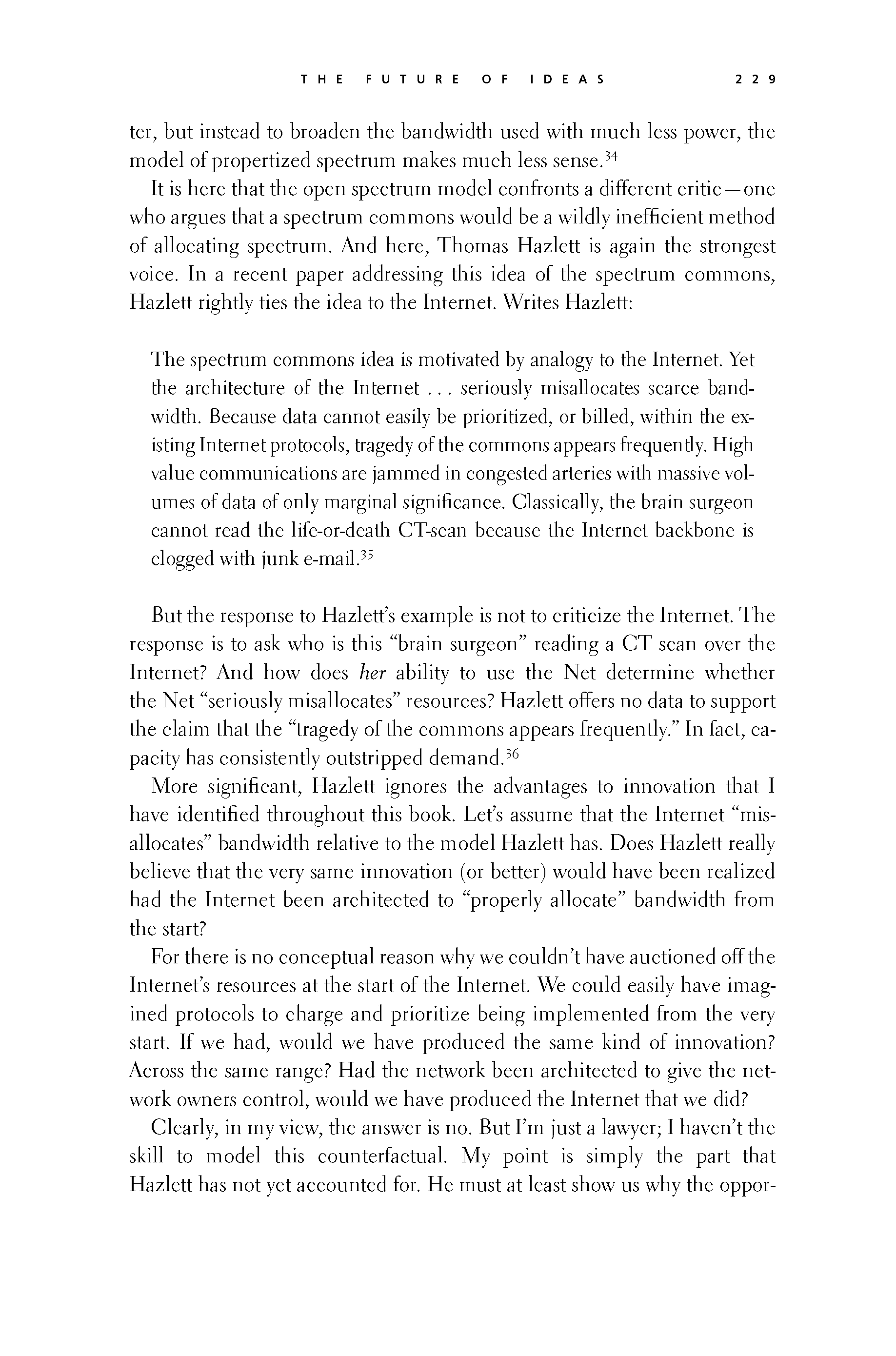 p228 _
-chap- _
toc-1 _
p229w _
toc-2 _
+chap+ _
p230
p228 _
-chap- _
toc-1 _
p229w _
toc-2 _
+chap+ _
p230
ter, but instead to broaden the bandwidth used with much less power, the
model of propertized spectrum makes much less sense.[12-34]
It is here that the open spectrum model confronts a different critic -- one
who argues that a spectrum commons would be a wildly inefficient method
of allocating spectrum. And here, Thomas Hazlett is again the strongest
voice. In a recent paper addressing this idea of the spectrum commons,
Hazlett rightly ties the idea to the Internet. Writes Hazlett:
____ The spectrum commons idea is motivated by analogy to the Internet. Yet
____ the architecture of the Internet... seriously misallocates scarce band-
____ width. Because data cannot easily be prioritized, or billed, within the ex-
____ isting Internet protocols, tragedy of the commons appears frequently. High
____ value communications are jammed in congested arteries with massive vol-
____ umes of data of only marginal significance. Classically, the brain surgeon
____ cannot read the life-or-death CT-scan because the Internet backbone is
____ clogged with junk e-mail.[12-35]
But the response to Hazlett's example is not to criticize the Internet. The
response is to ask who is this "brain surgeon" reading a CT scan over the
Internet? And how does _her_ ability to use the Net determine whether
the Net "seriously misallocates" resources? Hazlett offers no data to support
the claim that the "tragedy of the commons appears frequently." In fact, ca-
pacity has consistently outstripped demand.[12-36]
More significant, Hazlett ignores the advantages to innovation that I
have identified throughout this book. Let's assume that the Internet "mis-
allocates" bandwidth relative to the model Hazlett has. Does Hazlett really
believe that the very same innovation (or better) would have been realized
had the Internet been architected to "properly allocate" bandwidth from
the start?
For there is no conceptual reason why we couldn't have auctioned off the
Internet's resources at the start of the Internet. We could easily have imag-
ined protocols to charge and prioritize being implemented from the very
start. If we had, would we have produced the same kind of innovation?
Across the same range? Had the network been architected to give the net-
work owners control, would we have produced the Internet that we did?
Clearly, in my view, the answer is no. But I'm just a lawyer; I haven't the
skill to model this counterfactual. My point is simply the part that
Hazlett has not yet accounted for. He must at least show us why the oppor-
[[229]]
p228 _
-chap- _
toc-1 _
p229w _
toc-2 _
+chap+ _
p230